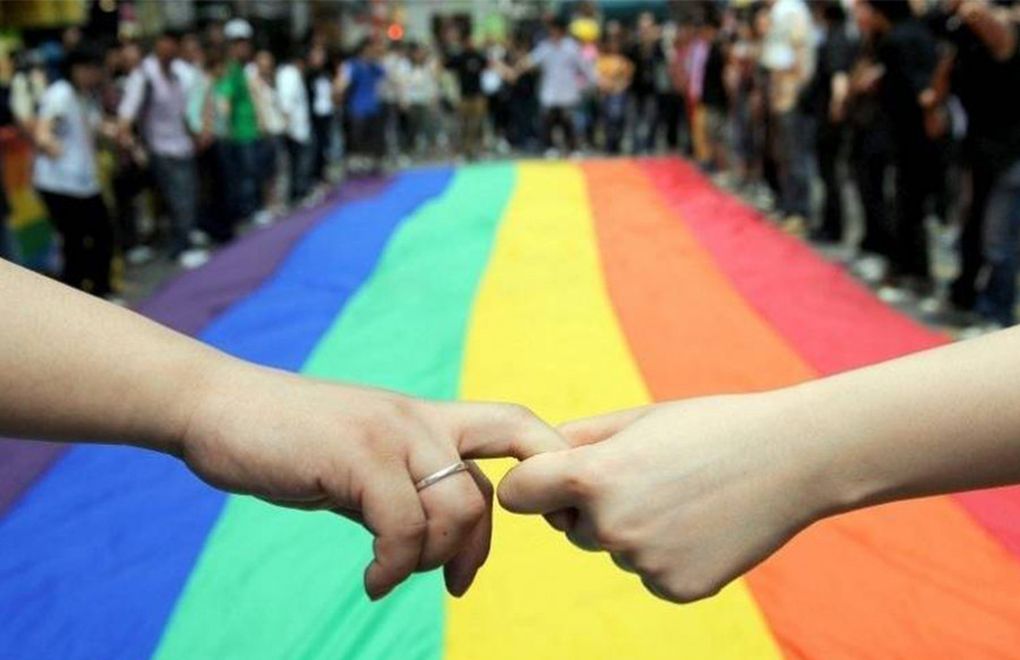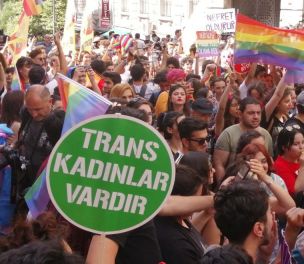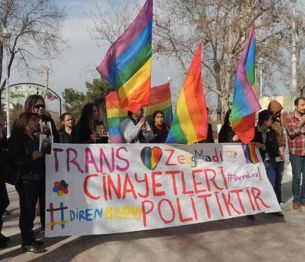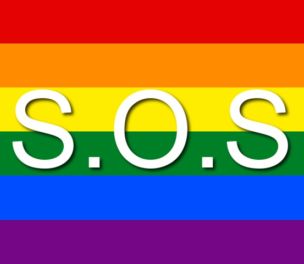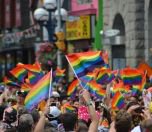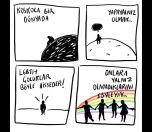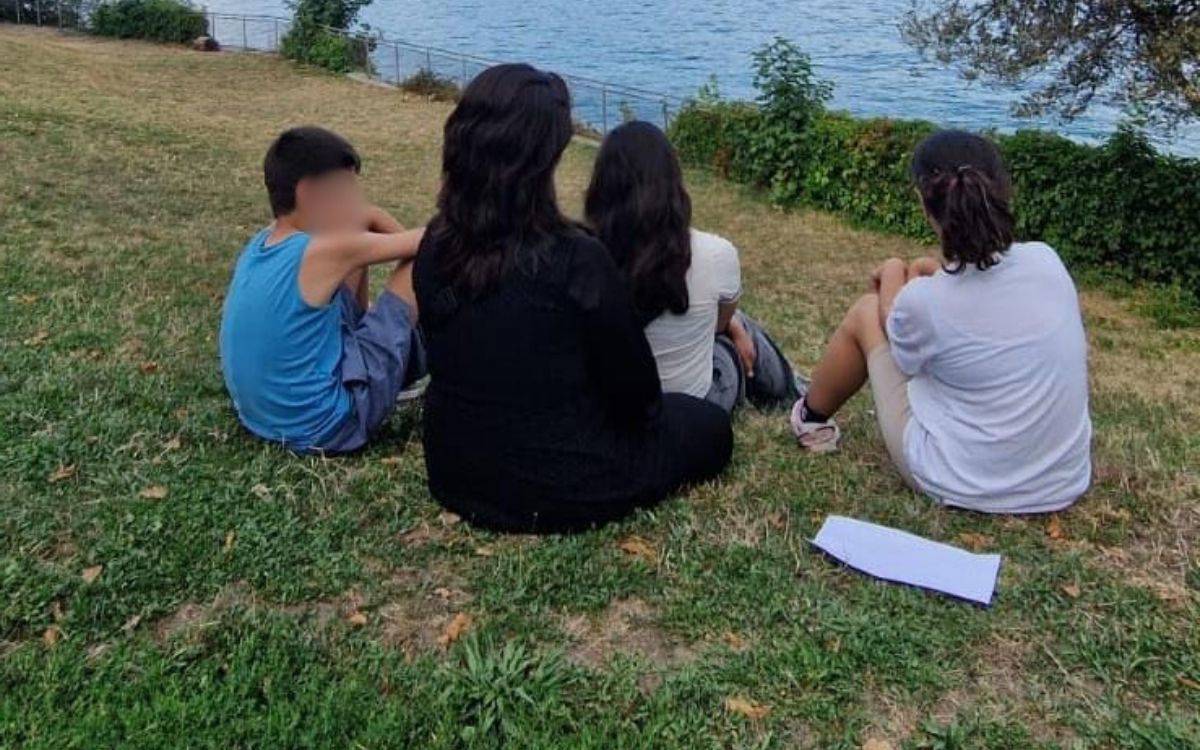* Photo: Ekmek ve Gül
Click to read the article in Turkish
Last week, three incidents of violence and discrimination against the LGBTI+ were reported in İstanbul. According to the news of Yıldız Tar from Kaos GL, on the one side, these three incidents manifest the systematic nature of the pressure and violence targeting the LGBTI+ community and, on the other, they show the violence incited and spread by the state apparatus.
I think that these systematic attacks against the LGBTI+ community and movement are directly related with the power and representation of the LGBTI+ movement, just as in the case of Women's Movement. While men attack women as the latter get more powerful, LGBTI+s are more and more hated and targeted by the system as they gain ground.
As you would also remember, on April 23 Children's Day, "LGBTI+ children" talked about their experiences on social media. It became a Trending Topic on Twitter in Turkey. Just after that, President of Religious Affairs Ali Erbaş targeted the LGBTI+s and HIV+ people in his Friday sermon on May 1.
After those targeting statements of Ali Erbaş, attacks against LGBTI+s who are visible in social life have increased.
Ajda cannot enter her house for 7 months
Ajda Ender is one of those people the state does not protect. She lives in Kurtuluş, İstanbul, she has been subjected to hate speech due to her sexual identity. Ajda is also one of the living examples who face the systematic attack of both the society and the state in Turkey.
Attacked by her neighbors because she is a transgender woman, Ajda appeals to justice; however, even though it is her life which is at risk, protection orders are issued for her neighbors. She is prevented from entering her home, a restraining order is issued against her. While the hatred of her neighbors is legitimized by the hand of the judiciary, LGBTI+ community is, once again, marginalized through Ajda.
What should we do?
Rights defenders should be able to put LGBTI+ rights on their agenda as soon as possible. If we will defend only our rights, then, what is the sense of being a rights defender? Everyone defends their own rights anyway. But how many of us can defend the rights of others? How inclusive can our defense of rights be? Or do you defend rights by ignoring those of the LGBTI+, fearing that someone will think you are gay or lesbian? Usually, political parties do not prefer to take LGBTI+ rights on their agenda, fearing that "the society is not ready," "they will lose votes" or "their base will not like it".
Last week, in response to the recent attacks against the LGBTI+, main opposition Republican People's Party (CHP) Vice Chair Gökçe Gökçen released a statement, which we do not usually expect from her party. In her statement, Gökçen said, "Defending the right to life of everyone openly is a responsibility of us all." The emphasis on the word "openly" there indicates a defense of rights beyond solidarity. This emphasis imposes new duties on us. In the face of a society which considers "secrecy" important in helping someone, she says, "Do not 'help', but 'defend rights' and do it 'openly'."
This month is the Pride Month. As Ali Yıldırım from the İstanbul LGBTI+ Pride Week Committee told bianet last week, the LGBTI+ community in Turkey "has come from the point of 'We are here, too' to a point where they just say 'We are here.' It is what the power holders are troubled with: "We don't say 'We are here, too', we say, 'We are here.'"
What about Europe?
It is the case in Turkey. But what about Europe? LGBTI+ community can lead a relatively visible and comfortable life in European capitals.
The European Commission has been struggling against prejudice and hate "openly." According to the Discrimination 2015 Europe Report, despite this "open" struggle by the commission, lesbian, homosexual, bisexual, transsexual and intersex (LGBTI+) people are still facing discrimination, hate speech and hate crimes in European Union (EU) countries.
Though 71 percent of the EU citizens agree that LGBTI+ individuals should have the same rights with heterosexuals, according to a study conducted by the EU Agency for Fundamental Rights (FRA), 47 percent of the participants that participated in the survey had been subjected to discrimination or harassment in a year before the survey.
European Commission published in December 2015 the List of Actions to Advance LGBTI Equality to move LGBTI+ equality forward. The Council adopted the first ever conclusions on LGBTI equality in June 2016 requiring Commission to annually report on the implementation of these actions.
The final report on the list of actions, covering 2019 and including reflections on the entire period of its implementation, was published on 15 May 2020 for the occasion of the International Day Against Homophobia, Transphobia and Biphobia (May 17).
Expressing its wish to be a member of the EU, Turkey can look at these publications to see what steps need to be taken to improve the rights of LBGTI+ community in the country.
It is June, it is the Pride Month... Steps of democratization, rather than hate speech, sexism and discrimination, can relieve all segments of society.
I wish a new week without violence to us all... (EMK/SD)





